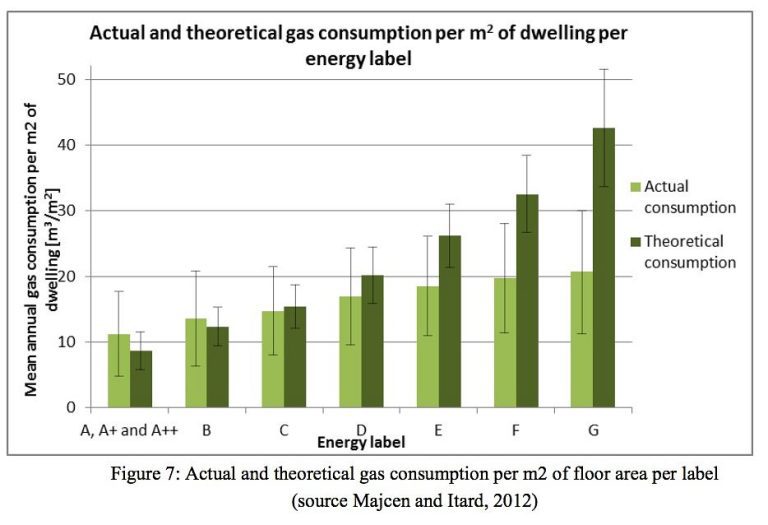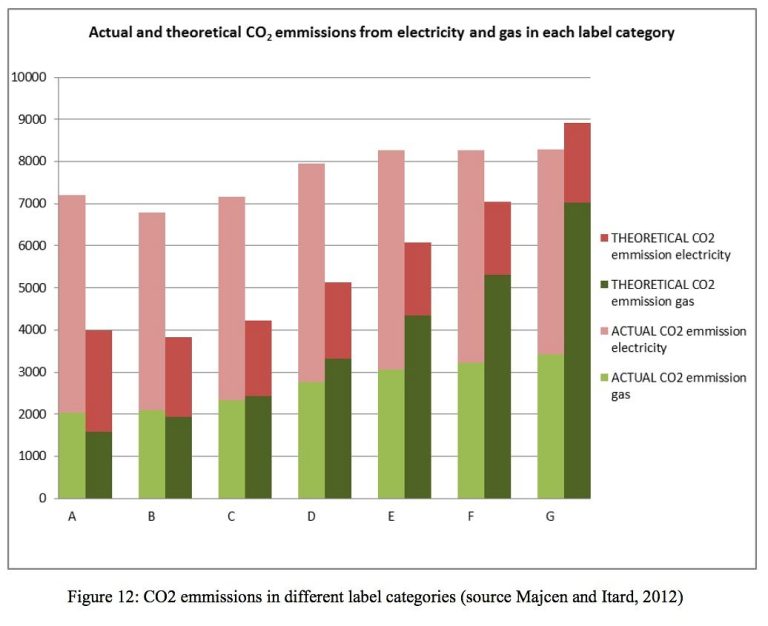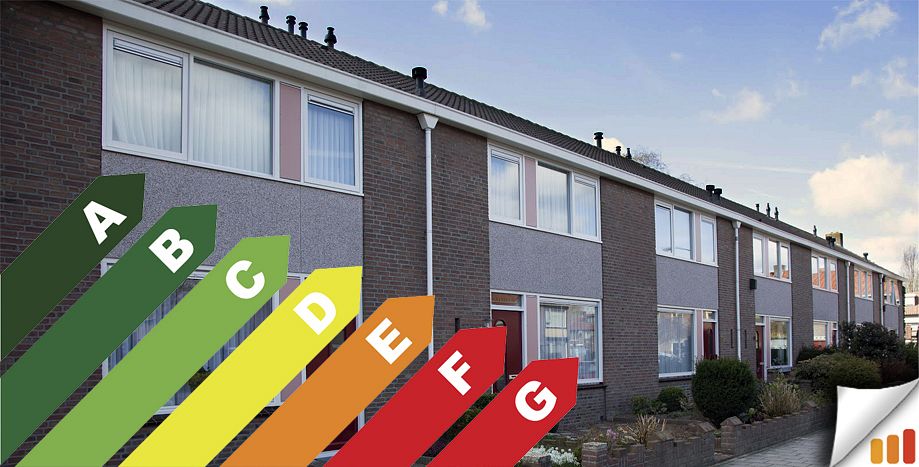There is a large gap between the theoretical and the actual energy consumption in Dutch houses, PhD researcher Daša Majcen found. Energy saving policies will not reach the goals set, she claimed.
Buildings account for 40% of the energy consumption and 36% of the CO2 emissions in the EU, says the European Commission. It, therefore, makes sense, in the context of limiting greenhouse gas emissions, to improve the energy efficiency of the housing stock. The EU introduced Energy Performance Certificates (in Dutch: energielabels) to reveal a building’s theoretical energy use and CO2-emissions. In reality, PhD researcher Dr. Daša Majcen, (research institute OTB at the Faculty of Architecture and the Built Environment) found that the differences in energy use were much smaller than expected. Not a factor of 5 between energy labels G and A++, but a factor of 2.


Theory & Practice
Majcen sampled 40,000 social housing units for which she coupled the energy label and the associated theoretical energy consumption with the actual energy use that she obtained from the Dutch Agency for Statistics CBS. In total, she sampled 200,000 houses, making her research representative for the Dutch housing stock. She found that single residents in old, poorly insulated houses sometimes use less energy than a family in an A-labelled house. The number of inhabitants, their lifestyle and also faulty installations steer the actual energy use away from the theoretical value.


Adding power
When you also take electricity use into account, which you should because it is responsible for two-thirds of a house’s CO2 emissions, modern well-insulated homes perform even more poorly. That is because the electricity consumption is independent of the energy performance certificate. The stunning effect is that, regarding real CO2-emissions, the performance of label-A houses is only marginally better at 13% instead of 55% (as theory would predict).
Majcen’s findings imply that (1) payback times of energy efficiency improvements are longer than previously thought and (2) that policies that rely on the use of energy performance certificates (EPC’s) to reduce energy use and CO2-emissions will fall short of their targets. She underlines the influence that inhabitants have on domestic energy consumption and pleads for more energy awareness at the user level.
–> Majcen Daša, Predicting energy consumption and savings in dwelling stock – a performance gap in the Netherlands, PhD supervisor Prof. Henk Visscher (OTB, BK), April 12, 2016. Available in the TU Delft repository



Comments are closed.